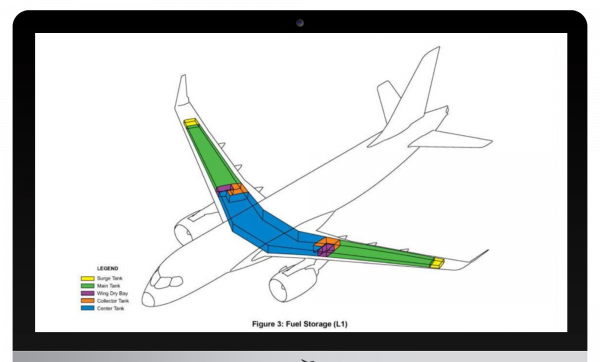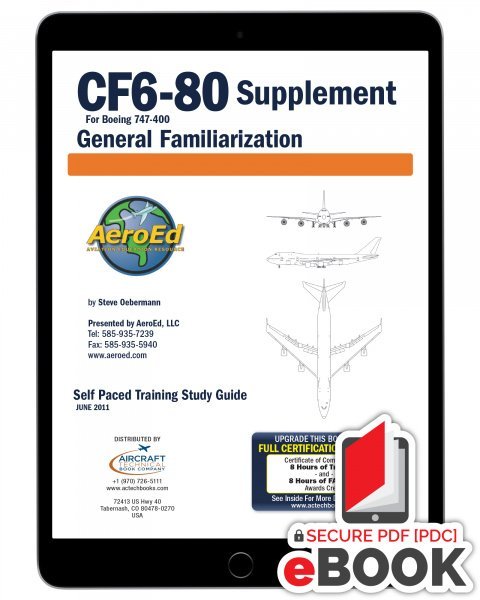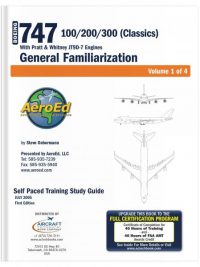Description
Last updated on June 16th, 2025 at 03:46 am
Course Overview and Benefits
The General Familiarization Course for the Boeing 737 300-500 airframe with CFM56 engines is tailored to provide comprehensive foundational knowledge essential for Aircraft Maintenance Technicians (AMTs). This self-paced program spans approximately 40 hours, though it can vary depending on the participant’s prior experience and study habits. Structured to create a progressive learning experience, the course is segmented into distinct chapters, each corresponding to specific ATA (Air Transport Association) sections.
The course’s pedagogical approach ensures that learners grasp key elements before advancing. Each segment culminates in a quiz designed to reinforce the knowledge acquired and assess understanding. Participants must successfully pass these quizzes to progress to subsequent chapters, thereby ensuring methodical and solid comprehension of the material.
Upon completing all chapters and quizzes, participants are awarded a serial numbered certificate. This certification not only validates their understanding of the Boeing 737 300-500 airframe and CFM56 engines but also enhances their credibility and employability in the aviation industry.
The General Familiarization Course is invaluable for new AMTs engaged in base and line operations, serving as an essential orientation to the Boeing 737 300-500 airframe. Additionally, it is a boon for individuals preparing for job interviews, providing them with the confidence and knowledge required to excel. For experienced technicians, the course serves as a vital review resource, enabling them to refresh their expertise comprehensively.
The course adheres to the stringent standards set by ATA 104 and EASA Part 66 at Level 1 compliance, ensuring that the training meets international regulatory requirements for aircraft maintenance. These compliance credentials underline the course’s rigor and reliability, making it a distinguished program in the realm of aviation training.
Certification, Credits, and Registration
The General Familiarization Course for the Boeing 737 300-500 Airframe with CFM56 Engines offers significant credentials and credits upon completion. Participants who complete this course will fulfill 8 hours of Inspection Authorization (IA) renewal credit, designated FAA ALC-1130. To acquire this credit, trainees can register their completion via the Federal Aviation Administration’s (FAA) platform. Upon successful notation of course completion, an IA certificate of accomplishment is readily available for download and printing from the faasafety.gov website.
In addition to the IA renewal credit, this course also grants participants 40 FAA FAAST AMT award points. These points contribute to the Aviation Maintenance Technician (AMT) Awards Program, which recognizes continuous education and superior maintenance performance. To secure these points, trainees need to register through their FAAST (FAASafety.gov) account, ensuring their achievements are recorded in the FAA system. This registration process involves logging into the FAAST account, navigating to the awards system, and submitting the course completion details.
The registration process for the course is straightforward. Once a participant purchases access, they should receive their login credentials promptly. Typically, these credentials are dispatched via email within a few minutes. However, if there is a delay, it is advisable for participants to check their spam or junk email folders before contacting the customer support services. Assistance is available to resolve any issues related to credential receipt expediently.
For training managers, the integration of this self-paced training into existing programs offers notable advantages. Economically, it reduces the necessity for on-site training sessions, thereby saving costs related to travel and accommodation. Operationally, it allows Aviation Maintenance Technicians (AMTs) to attune their learning schedules to their work commitments. This flexibility ensures that ongoing professional development can occur without disrupting regular maintenance operations, resulting in better-trained staff who can meet the stringent demands of airframe maintenance thoroughly and efficiently.







Reviews
There are no reviews yet